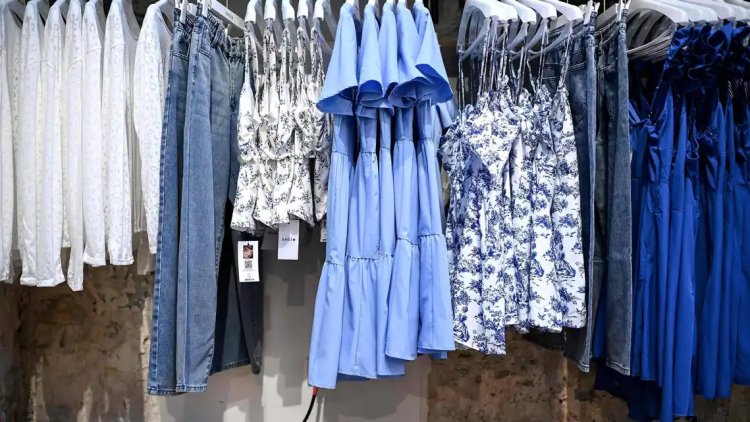EU Urges Swift Action from Fast Fashion Brands to Improve Sustainability
EU Pushes for Urgent Action on Textile Waste and Sustainability in Fashion Industry

Textile waste poses a growing concern as the fashion industry thrives, contributing significantly to carbon emissions and waste accumulation. In line with the urgency for change, the European Commission has emphasized the need for implementing textile waste regulations by 2028.
Popular fast fashion brands such as H&M and Inditex, situated in Europe, have been urged to address their production practices. While these brands have expressed intentions to reduce water and energy consumption and increase the use of recycled textiles, they have not shown signs of decreasing their overall production, as reported by Reuters.
To tackle Europe's environmental impact and combat climate change, the EU aims to have comprehensive regulations in place by 2028, targeting the fashion industry's sustainability efforts. Virginijus Sinkevičius, speaking at the Global Fashion Summit in Copenhagen, highlighted the significant pressure the fashion industry places on natural resources and pollution, emphasizing the need for action.
The EU is currently drafting multiple legislations—around 16 in total—to hold fashion companies accountable for the environmental consequences of their products. The implementation of these measures, although challenging for fast fashion brands, is projected to occur within the next five years. The regulations propose that fashion companies either collect a specific percentage of their production as textile waste or contribute fees toward local authorities' waste collection initiatives. The designated amount will gradually increase over time, as stated by Reuters.
Furthermore, EU governments have recently reached an agreement to ban the destruction of unsold textiles, promoting reuse and recycling. By 2030, the EU envisions fashion companies producing more durable items that can be easily reused or recycled. Additionally, the EU is working on regulations to limit fashion brands' use of misleading sustainable claims for promotional purposes.
In May, it was announced that Shein, a prominent Chinese fast fashion brand, is making a comeback in India through a partnership with Reliance Industries Ltd, owned by Mukesh Ambani. Alongside allegations of intellectual property infringement and labor law violations, Shein has faced criticism for its environmental impact. The company reportedly emits 6.3 million tonnes of carbon dioxide annually, falling significantly short of the 45% reduction target for global carbon emissions by 2030, as reported by Time.

 chandni
chandni 



